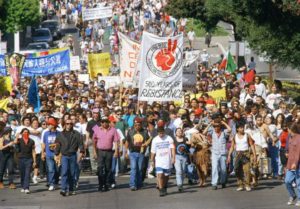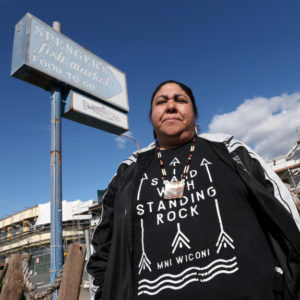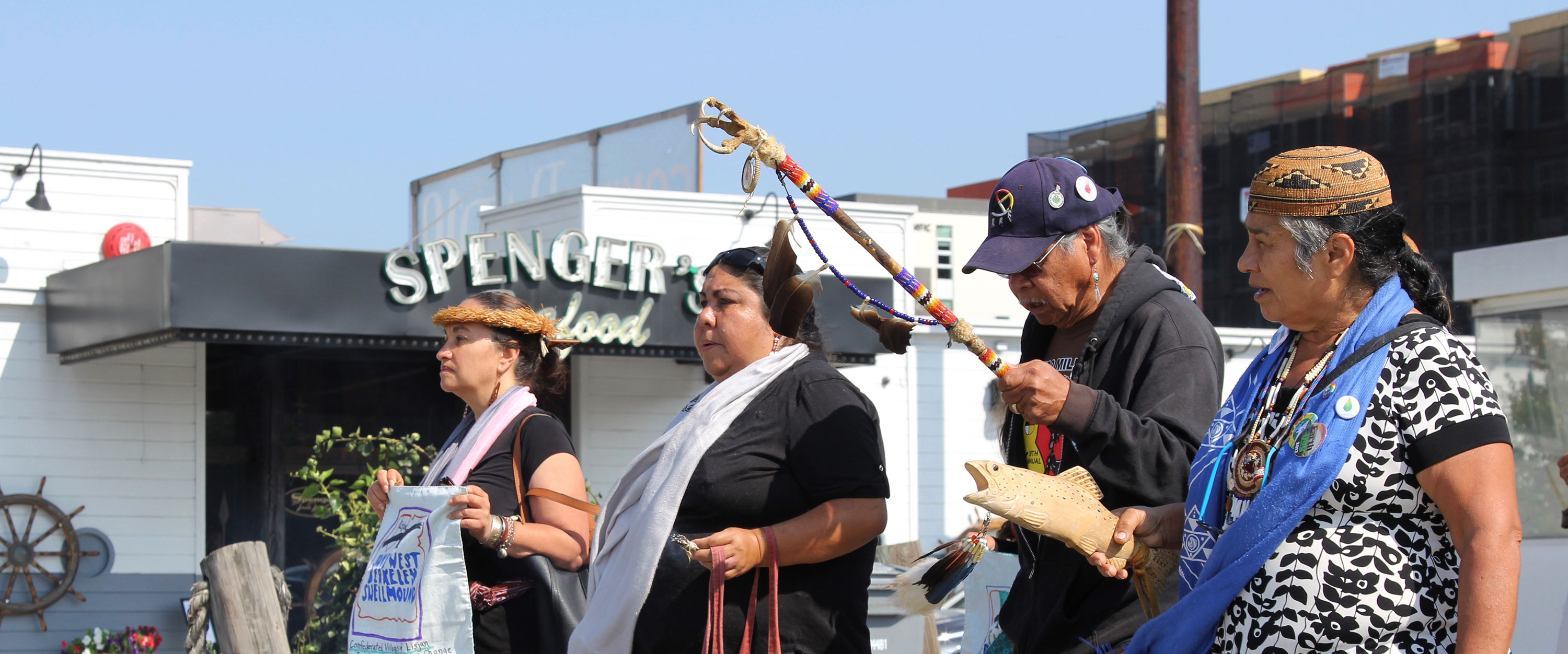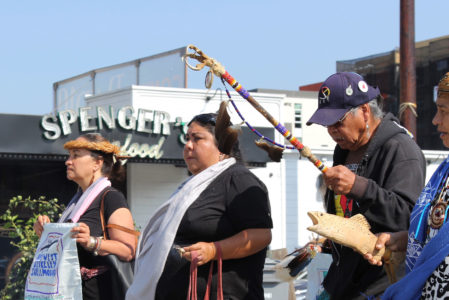
More than perhaps any other municipal government in the country, the City of Berkeley has a long track record of vocally advocating for the rights of indigenous peoples. In 1992, Berkeley became the first American city to replace Columbus Day with Indigenous Peoples Day. Now, in 2018, the struggle for indigenous sovereignty, environmental justice, and sacred sites has come to Berkeley’s own waterfront and Ohlone leaders are asking the city to keep its promises and stand by its principles.
In January of 2016, the City of Berkeley passed a resolution formally recognizing the Ohlone Peoples as the original inhabitants of Berkeley and committing to work in good faith with representatives of the Ohlone peoples today. Simultaneously, the City passed Resolution No. 67,353 recognizing that the West Berkeley Shellmound site is "held sacred by Ohlone peoples," and stating that:
"Free, prior and informed consent of the Ohlone and other indigenous peoples of the region should be integral to any alteration planning for the Berkeley Shellmound sacred site, in accordance with the provisions of the United Nations Declaration on the Rights of Indigenous Peoples."
The distinctive importance of the West Berkeley Shellmound village and burial site was first affirmed by the City of Berkeley in 2000, when it was designated as Berkeley City Landmark #227. The city’s Landmarks Preservation Commission stated in its Notice of Decision that the shellmound area is "highly significant to native descendants as a sacred burial ground." This site in its entirety is also listed on the California Register of Historical Resources and has been determined eligible for listing on the National Register of Historic Places under all four eligibility criteria.
The Right to Maintain and Protect
In 2015, the City of Berkeley unanimously adopted a resolution to implement the United Nations Declaration on the Rights of Indigenous Peoples (UNDRIP) as municipal policy. Among its many relevant provisions, UNDRIP specifically mandates that "free, prior and informed consent" be obtained from indigenous people prior to implementation of measures that may affect them, and further states:
- Article 12(1). Indigenous peoples have the right to manifest, practice, develop and teach their spiritual and religious traditions, customs and ceremonies; the right to maintain, protect, and have access in privacy to their religious and cultural sites; the right to the use and control of their ceremonial objects; and the right to the repatriation of their human remains.
- Article 25: Indigenous peoples have the right to maintain and strengthen their distinctive spiritual relationship with their traditionally owned or otherwise occupied and used lands, territories, waters and coastal seas and other resources and to uphold their responsibilities to future generations in this regard.
- Article 26 (1) Indigenous peoples have the right to the lands, territories and resources which they have traditionally owned, occupied or otherwise used or acquired…(3) States shall give legal recognition and protection to these lands, territories and resources. Such recognition shall be conducted with due respect to the customs, traditions and land tenure systems of the indigenous peoples concerned.
Upon request by the Confederated Villages of Lisjan, the City of Berkeley formally consulted with Ohlone tribal leadership in 2017 about the proposed 1900 Fourth development and its impacts on tribal cultural resources, as mandated by California laws AB 52 and SB 18. During these meetings, the Confederated Villages of Lisjan raised many concerns about the proposed project and made clear their firm opposition to any development on the 1900 Fourth property, as have two other Ohlone family bands. Thus, consent has not been obtained.
Berkeley’s Support for Standing Rock

In support of the Standing Rock Sioux opposition to the Dakota Access Pipeline, the City of Berkeley passed a resolution in late 2016, decrying the harm that pipeline development was inflicting on "treaty protected land containing recognized cultural resources…without proper Tribal consultation or meaningful environmental review." The resolution concludes, "we call on all residents of Berkeley to raise awareness about this important struggle for Indigenous sovereignty and environmental justice and to support the Sacred Stone Camp efforts in any way they can."
Now, as the 1900 Fourth developers ramp up their aggressive campaign to destroy an Ohlone sacred site for financial gain, the City of Berkeley must determine where it will stand when the stakes are much higher, at this critical and historic moment for environmental justice and indigenous sovereignty—right within their own city limits.
Not another broken treaty
Let’s ask Berkeley to use every tool available to preserve what remains of the West Berkeley Shellmound and Village Site.
Please take a moment to email, write, or call an official from the City of Berkeley and ask them to ensure that Berkeley honors the commitments the city has made to the Ohlone community and stands by the principles of the UN Declaration on the Rights of Indigenous Peoples. ☆
Click here to show city contact information
